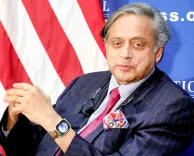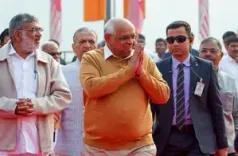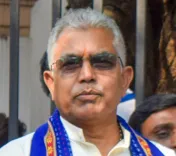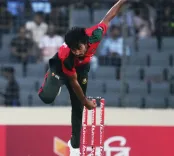Does India Really Need a National Language?
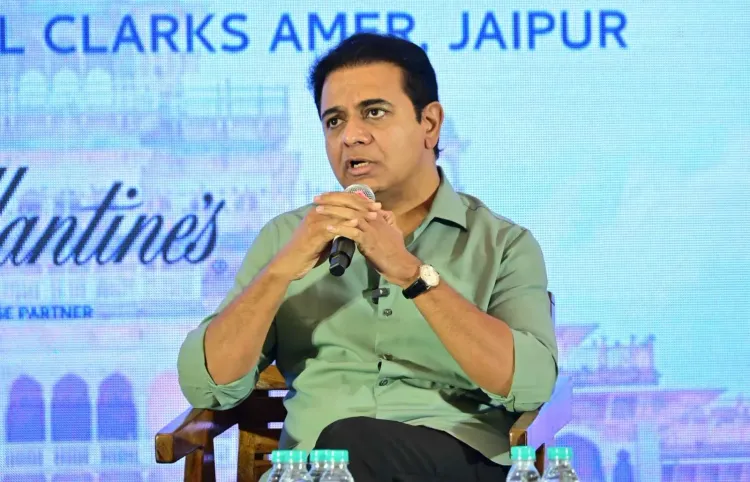
Synopsis
Key Takeaways
- India has 22 official languages.
- Language reflects cultural identity.
- Demographic imbalances affect political representation.
- Voter suppression threatens democracy.
- Federal structure needs protection against centralization.
Hyderabad, July 20 (NationPress) In light of the ongoing discussions regarding the potential enforcement of Hindi, Bharat Rashtra Samithi (BRS) working president KT Rama Rao asserted on Sunday that India does not have a national language, nor does it require one.
He argued that with 22 official languages and over 300 unofficial languages, India’s rich diversity is its greatest asset. “Language is not merely a means of communication; it embodies our cultural identity. I don’t impose Telugu on anyone, so why should Hindi be imposed on me?” he questioned during a discussion titled ‘The North-South Divide in Indian Politics’ at the 9th edition of Talk Journalism in Jaipur.
KTR emphasized that India has functioned effectively for over 70 years without a national language and sees no reason for change.
Popularly known as KTR, the BRS leader made a compelling argument for safeguarding India’s federal structure, warning against the increasing centralization of power and resources favoring the Hindi heartland at the expense of southern states.
He insisted that representation in Parliament should not be solely determined by population figures. He pointed out that southern states, having implemented population control measures and significantly contributing to the national economy, should not be penalized for their discipline.
KTR presented data showing that southern states like Kerala have managed to keep population growth to just 69 percent since 1950, while Uttar Pradesh experienced a staggering increase of 239 percent. He warned that this demographic disparity could lead to a political imbalance through the proposed delimitation process, potentially resulting in South India losing parliamentary seats while North India gains.
“Population alone cannot dictate seat redistribution or delimitation. Such a move will centralize policies and fiscal resources. If political parties believe that the Hindi belt will determine the Prime Minister, the focus will shift to policies favoring that region, leaving the rest of India neglected,” KTR cautioned.
He also referenced the unfulfilled commitments made by the BJP-led Union government, such as increasing Assembly seats in Telangana and Andhra Pradesh under the AP Reorganisation Act. KTR questioned the credibility of the Centre, stating, “They quickly increased seats in Jammu and Kashmir and Assam for political gain, while ignoring South India. Why should they be trusted now on delimitation?”
KTR expressed concern over recent controversies surrounding electoral roll revisions in Bihar, highlighting allegations of nearly 5 lakh voters being removed from the rolls. He warned that such actions threaten the foundations of democracy in India.
“This is extremely alarming. In the last elections in Bihar, the margin of defeat was only 12,500 votes. What if voter suppression determines an election outcome? Denying even one Indian their right to vote is unacceptable in the world’s largest democracy,” he urged, calling for swift action from the Election Commission of India.


